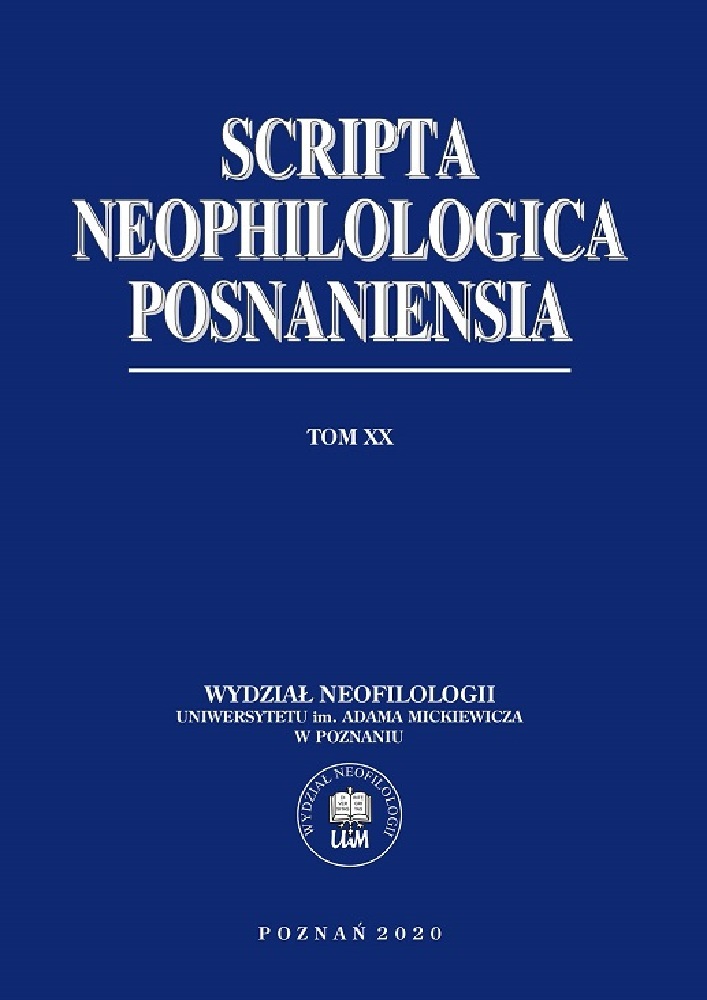Abstrakt
Odysseus or in Latin, Ulysses, is kind of literary character who, by his special qualities and his adventures, gives writers many possibilities of variation in reworking the myth. The demand of the audience as well as the authors’ desire for originality provide the main motive of the myth to be presented in a new way. Thanks to it, every writer, who undertakes a piece of work, tries to produce a new portrait of the well-known mythical hero. The source of variation in the myth can also be the natural tendency of authors to assimilate the old material to contemporary fashions and customs1. Problems of morality must have also arisen in the development of the myth over the centuries. Another cause of change in the traditional material lies in the writer’s technical inventions. All of these factors are interesting enough to the present author in presenting the many faces of the Homeric hero, Odysseus, which have changed over the course of time.
Bibliografia
Arystoteles. 1996. Etyka Nikomachejska. In: Arystoteles. Dzieła wszystkie, v. 5. Warszawa.
Barron, J., Easterling, P.E. and S. Kirk. 1985. “The epic tradition after Homer and Hesiod”. In: Easterling, P.E., Bernard M. and W. Knox. (eds.). The Cambridge History of Classical Literature. Part I: Greek Literature. Cambridge: Cambridge University Press. 106–116.
Campbell, J. 1972. The hero with a thousand faces. Princeton, N.J.: Princeton University Press.
Dante, A. 2011. The Divine Comedy. (Henri F. Cary’s Translation Complete). Aeterna.
Dio, Ch. 1932. Discourses 1–11. (English Translation by J.W. Cohoon). Cambridge, Mass.: Harvard University Press.
Homer, 1998. The Odyssey. (Translated by Robert Fitzgerald, Introduction D.S. Carne-Ross). New York: Farrar, Straus and Giroux.
Hughes, L. 1979. “Dramatis and private personae: Ulysses revisited”. Victorian Poetry 17.3. 192–203.
Jaeger, W. 2001. Paideia. (Translated by M. Plezia and H. Bednarek). Warszawa: Fundacja Aletheia.
Kennedy, G. 1980. Classical rhetoric and its christian and secular tradition from ancient to modern times. Chapel Hill, NC: University of North Carolina Press.
Pettigrew, J. 1963. “Tennyson’s Ulysses: a reconciliation of oppositions”. Victorian Poetry 1. 27–45.
Prevelakis, P., Sherrard, P. and K. Friar. 1961. Nikos Kazantzakis and his Odyssey. A Study of the poet and the poem, (Translated from the Greek by Philip Sherrard). New York: Simon and Schuster.
Ramfos, S. 1987. Nostoi. Athens.
Reale, G. 1993. Historia filozofii starożytnej. Tom1: Od początków do Sokratesa. (Translated by E.I. Zieliński). Lublin: Wydawnictwo KUL.
Sheppard, R. 2004. “Problematyka modernizmu europejskiego”. (Translated by P. Wawrzyszko. In: Nycz, R. (ed.). Odkrywanie modernizmu. Kraków: Universitas.
Stanford, W. 1963. The Ulysses theme. A study in the adaptability of a traditional hero. Oxford: Blackwell.
Tennyson, A. 1991. Selected poems. London: Penguin Books.
Wrazas, I. 2009. Zbawca Boga. Kuszenie Nikosa Kazantzakisa. Wrocław: Wydawnictwo Uniwersytetu Wrocławskiego.
